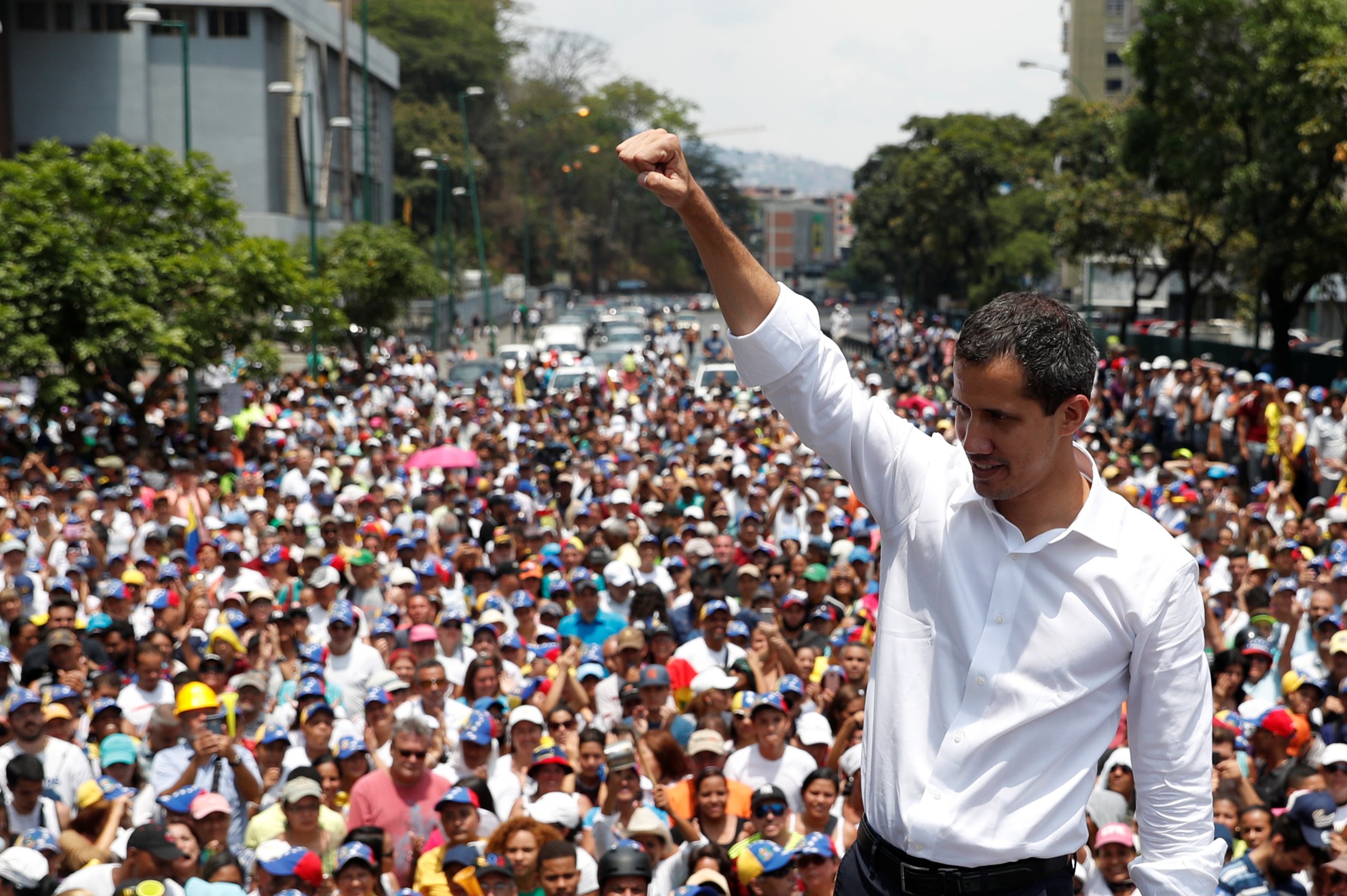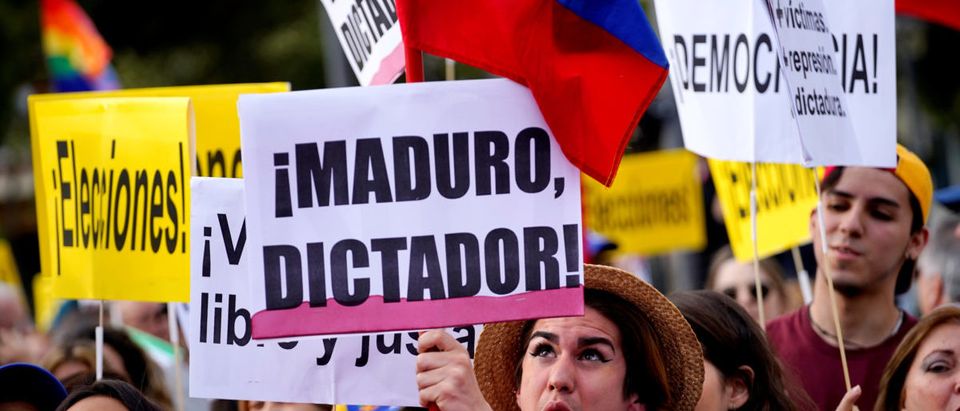- Venezuelan revolutionary leader Juan Guaido failed to overthrow President Nicolas Maduro on Tuesday after calling on the military to oust the South American dictator.
- Secret talks between Venezuelan military officials and revolutionary leader Juan Guaido reportedly broke down or were sabotaged.
- Guaido called on the military to revolt but lacked support from the generals, and Maduro remained in control despite thousands of Venezuelans protesting against him.
Revolutionary leader Juan Guaido’s gambit to oust Venezuelan dictator Nicolas Maduro failed Tuesday after Guaido called on the military to oust the sitting president.
Guaido’s gamble failed after secret talks between the revolutionaries and high-ranking officials in Maduro’s regime reportedly either broke down or were sabotaged, leading Guaido to call upon the Venezuelan military without having the support of its top leadership, The Wall Street Journal reported.
The United States and 53 other countries recognize Guaido, the president of Venezuela’s National Assembly, as the legitimate president of Venezuela. Maduro continues to rule with strong support from China, Cuba and Russia.
“We know that a part, a large part, a majority of the [military] high command were talking with the Supreme Court and Juan Guaidó about a change, a change in government, with the departure of Maduro, and with guarantees for the military,” U.S. special envoy Elliott Abrams told an online Venezuelan TV network VPITV Wednesday, according to TheWSJ.
Maduro denied reports that officials in his government engaged in talks with Guaido. Maduro and other top government officials blamed the U.S. for attempting to stage a “coup” in Venezuela, calling Guaido a puppet of Washington.
Guaido’s camp believed it had struck a tentative deal and had drawn up an agreement outlining guarantees for top government officials, including allowing them to stay in their positions and committing to holding new elections within a year. Guaido would serve as interim president until another was elected.
“There is a document,” Abrams told VPITV, The Guardian reported. “The U.S. was not involved in the negotiations, but they tell me it is a long document — there are 15 points I think — it mentions guarantees for the military, a dignified exit for Maduro, Guaidó as interim president, the supreme court and the high command stay in position, free elections within 12 months.”
Guaido launched “Operation Liberty” to oust Maduro on Tuesday morning in a three-minute video at La Carlota air base in Caracas. In the video, Guaido was flanked by National Guard troops that had defected from Maduro. (RELATED: Here’s Everything You Need To Know About The Uprising In Venezuela)

Venezuelan opposition leader Juan Guaido, who many nations have recognised as the country’s rightful interim ruler, gestures as he speaks to supporters during a rally against the government of Venezuela’s President Nicolas Maduro and to commemorate May Day in Caracas Venezuela, May 1, 2019. REUTERS/Carlos Garcia Rawlins
One military official, Venezuela’s head of secret service Gen. Manuel Figuera, switched sides to Guaido and freed journalist and activist Leopoldo López, Guaido’s mentor, from house arrest.
No other officials answered Guaido’s call and Maduro sent out enforcement personnel to tamp down protests. Videos of gunfire from Maduro and Guaido soldiers spread over Twitter. Network news stations showed a video of Maduro military personnel in an armored vehicle running over a crowd of protesters.
One person died and dozens were left injured. Guaido called on federal workers to protest through Thursday in an attempt to ratchet up pressure on Maduro.
The United States has continued to support Guaido’s revolt. Cuban and Russian agents in Venezuela are reportedly by Maduro’s side and might have influenced his decision to stay in power through the Tuesday riots, according to TheWSJ.
“We’re at a time for choosing here,” Bolton said at a White House foreign policy meeting Wednesday, according to The Guardian. “And I just don’t believe President Trump is prepared to see foreign governments effectively take over the control of Venezuela, and which possesses the largest reserves of petroleum in the world.”
All content created by the Daily Caller News Foundation, an independent and nonpartisan newswire service, is available without charge to any legitimate news publisher that can provide a large audience. All republished articles must include our logo, our reporter’s byline and their DCNF affiliation. For any questions about our guidelines or partnering with us, please contact licensing@dailycallernewsfoundation.org.


